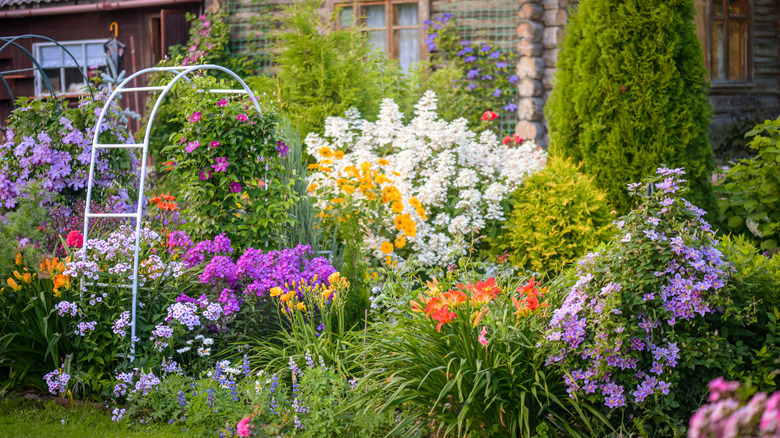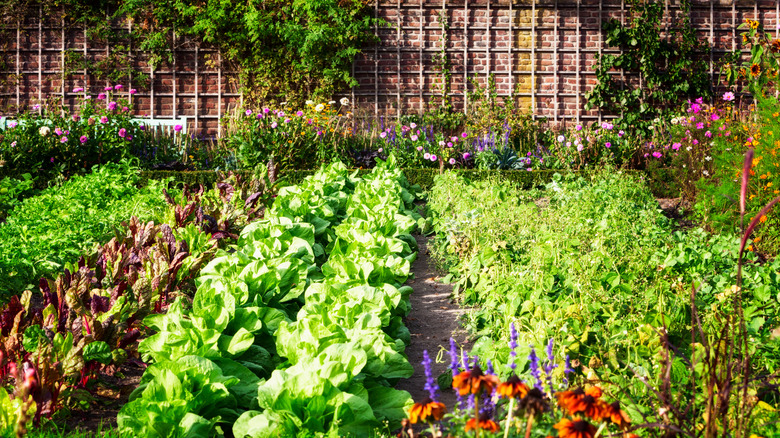Are Plant-Specific Fertilizers Really Worth Buying?
It's understandable that people who are relatively new to gardening can sometimes get confused when it comes to choosing fertilizers. You might think that all-purpose fertilizer would have everything covered, but then there are plant-specific formulas for roses, tomatoes, your lawn, and more. It seems every time you look, there's another solution targeting a particular flower, fruit, or vegetable.
Are these specialist plant foods actually worth buying? Much depends on what you are trying to achieve. If your rose garden is your pride and joy, then there are fertilizers that help adjust conditions to suit those flowers in particular. That said, there are clever tricks to help your roses thrive that have nothing to do with store-bought products. Tomatoes benefit from regular feeding and the right balance of nutrients to get the most fruit, but there are a host of DIY tomato fertilizers that will make them more productive. You don't necessarily need to buy them.
So the answer isn't simple. For pretty much every plant-specific fertilizer at the store, there are natural, homemade alternatives. And, in some scenarios, you should think twice about using fertilizers at all because of the harm they might do. Then there's the cost to consider. On balance, plant-specific fertilizers may not be worth buying for most home gardeners because you can either use a cheaper general-purpose product or a DIY version. However, if you're trying to create the best environment for healthy growth, fertilizer is not the whole story.
A more balanced approach to a healthy garden
One concern with using plant-specific fertilizers is a tendency to turn to them for a quick fix. Like taking aspirin for a headache, it might work in the short term, but is it hiding a more serious condition? There can be a variety of problems with your garden soil that no amount of fertilizer will help. The type of soil, its condition, irrigation, insects, diseases, and weed control are all factors. Adding organic matter (compost, grass clippings, and leaf mulch, for example) provides a variety of long-term benefits in feeding the soil and, in turn, your plants. It also avoids adding chemicals that might give a quick boost but can actually be harmful to root systems.
Growing plants in pots is a little different because they are in a closed environment, so regular fertilizing is recommended. Nevertheless, a general-purpose product that delivers nitrogen, potassium, and phosphorus should be perfectly adequate in most cases.
We're not suggesting that plant-specific fertilizers don't work, particularly if you're experiencing problems with one particular flower or vegetable and the rest of the garden is growing well. However, knowing how to prepare your soil for planting and focusing on taking care of its health can be kinder to the environment and kinder to your pocket, too.

